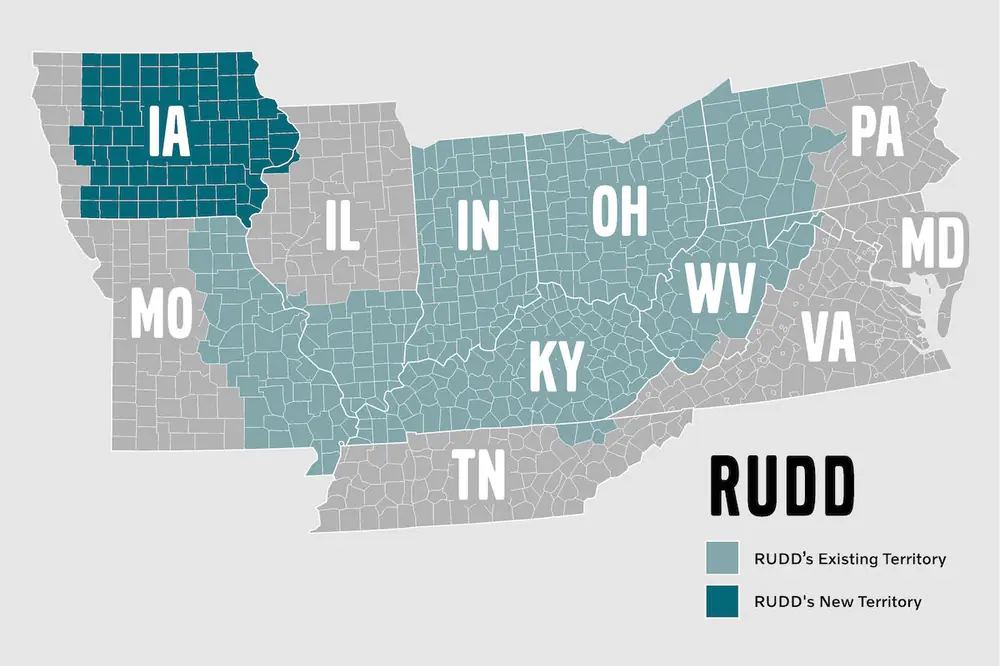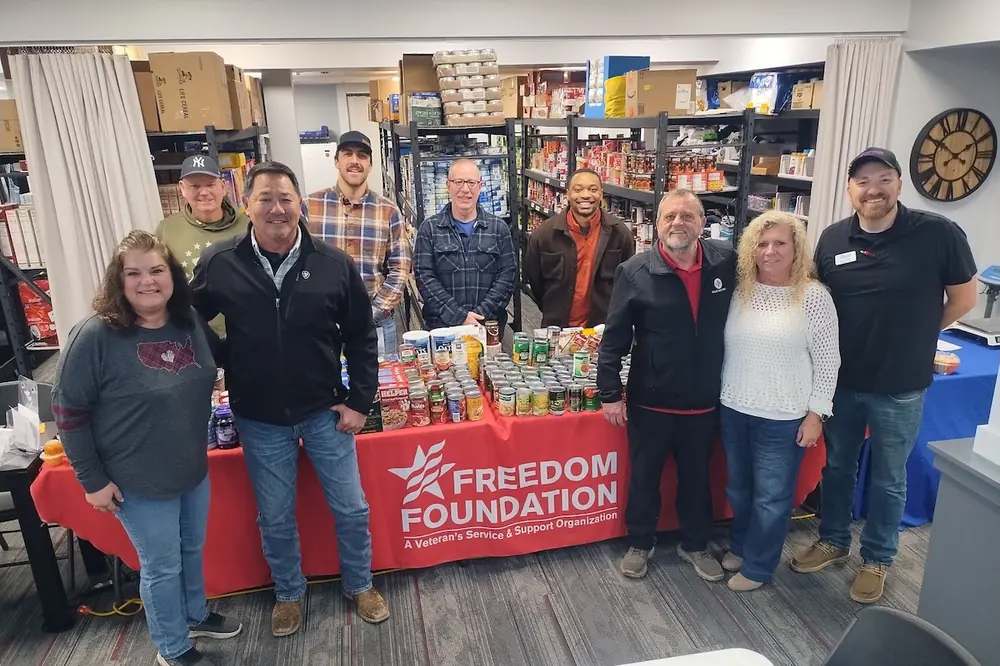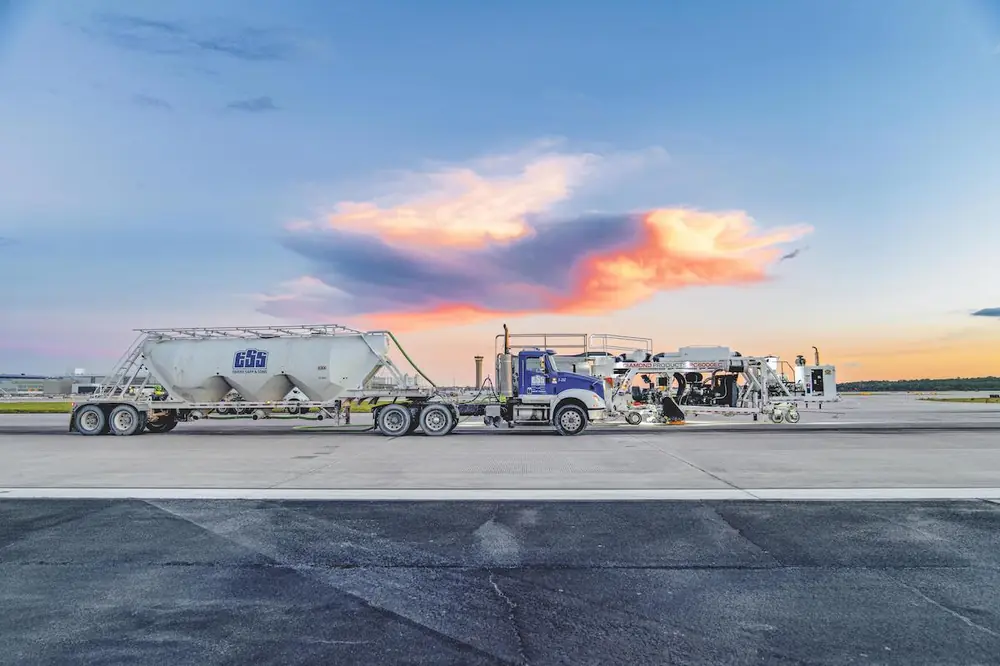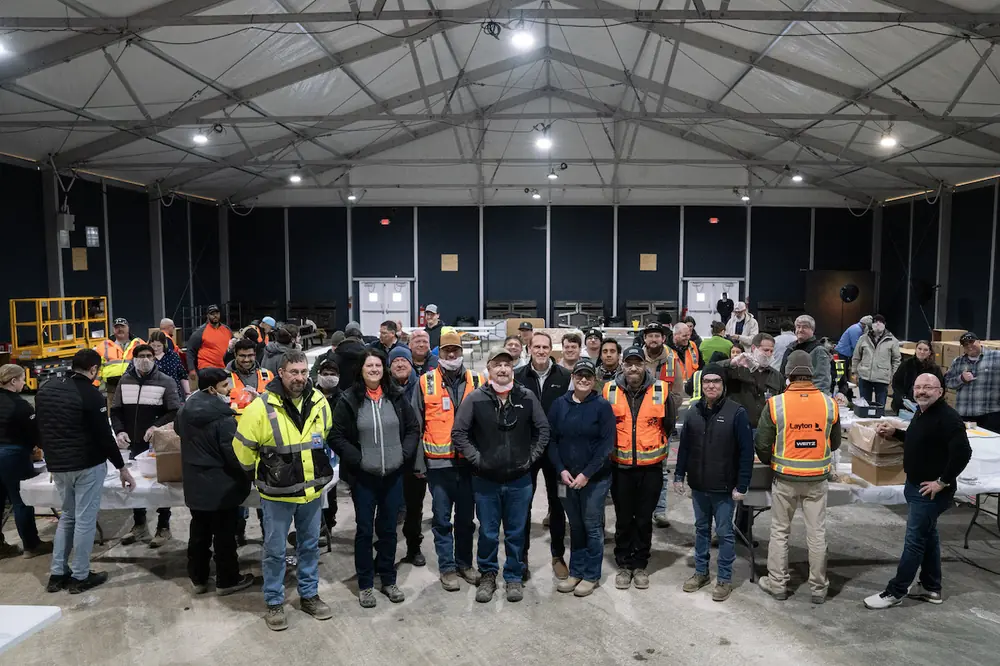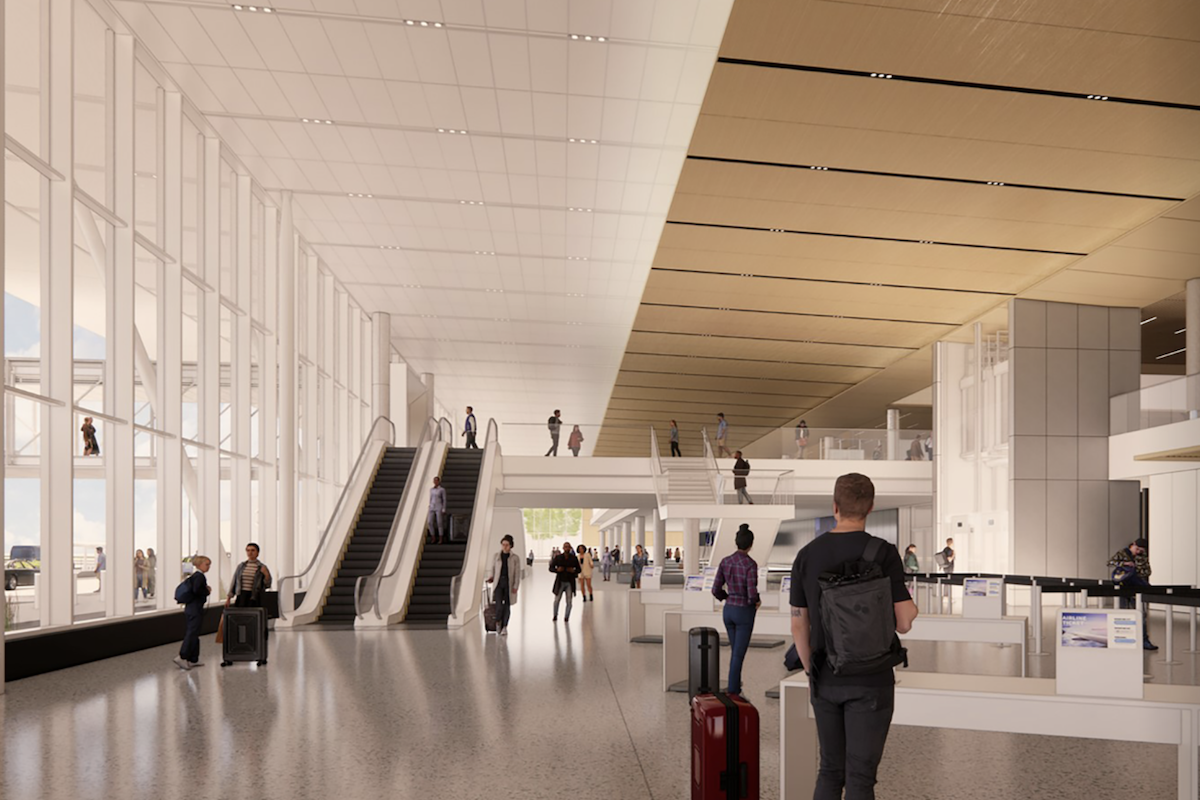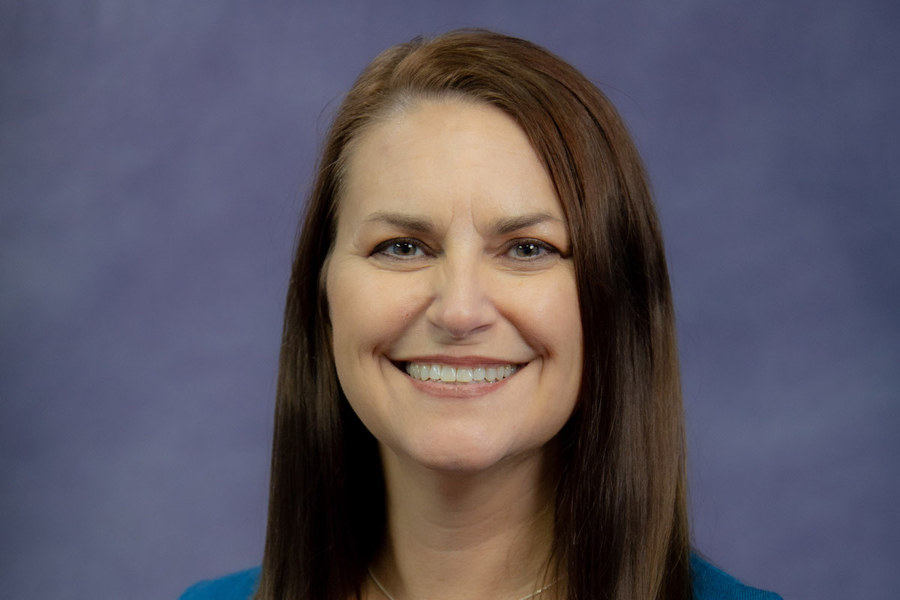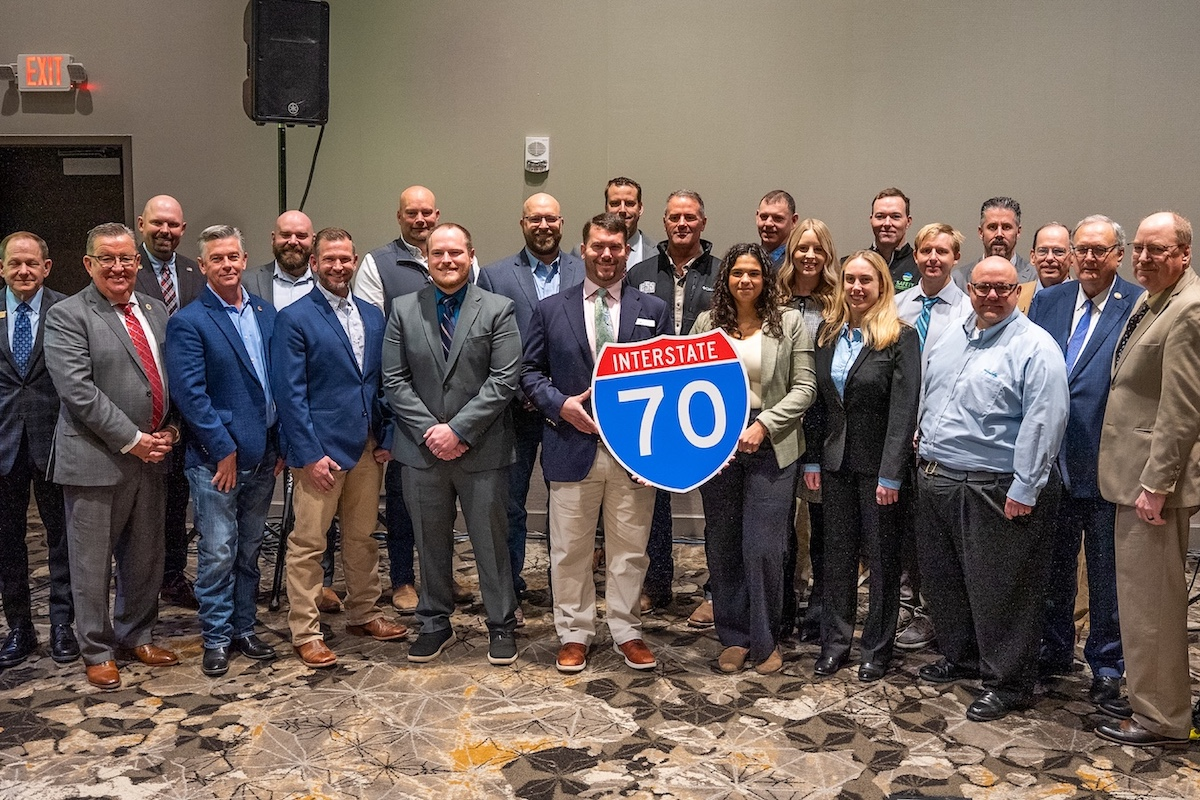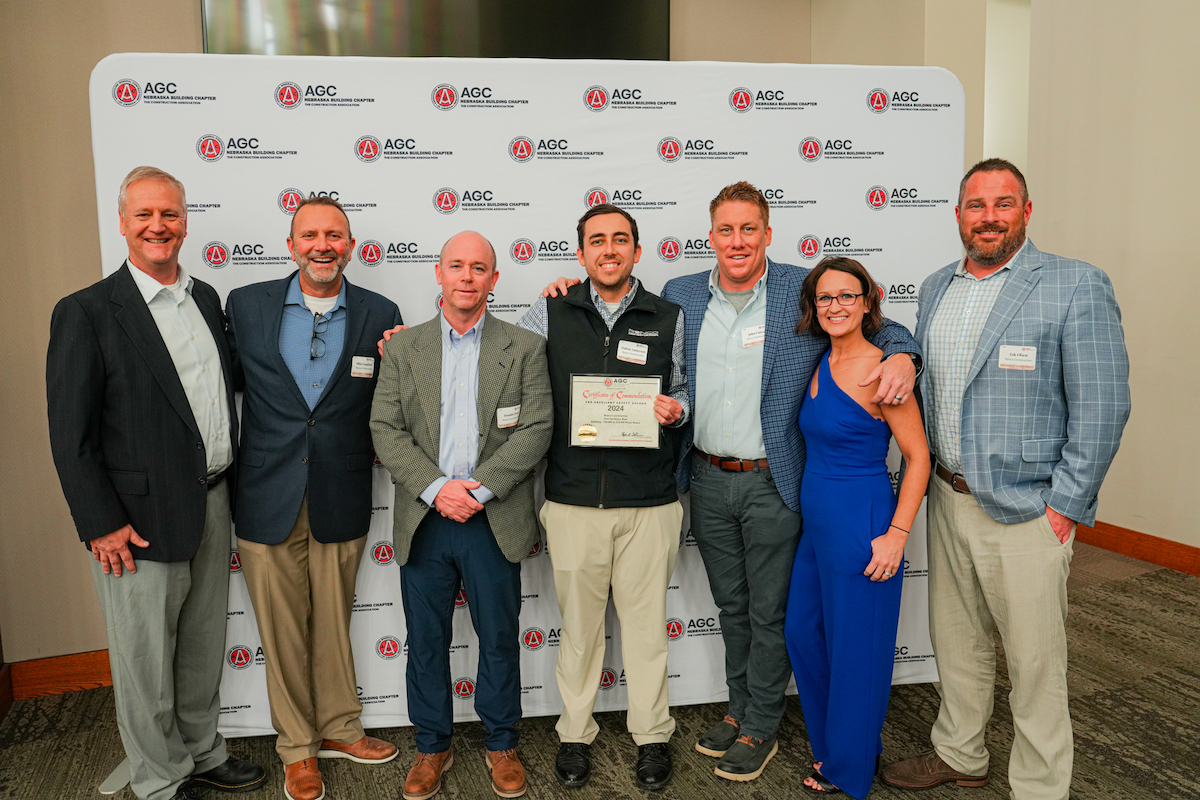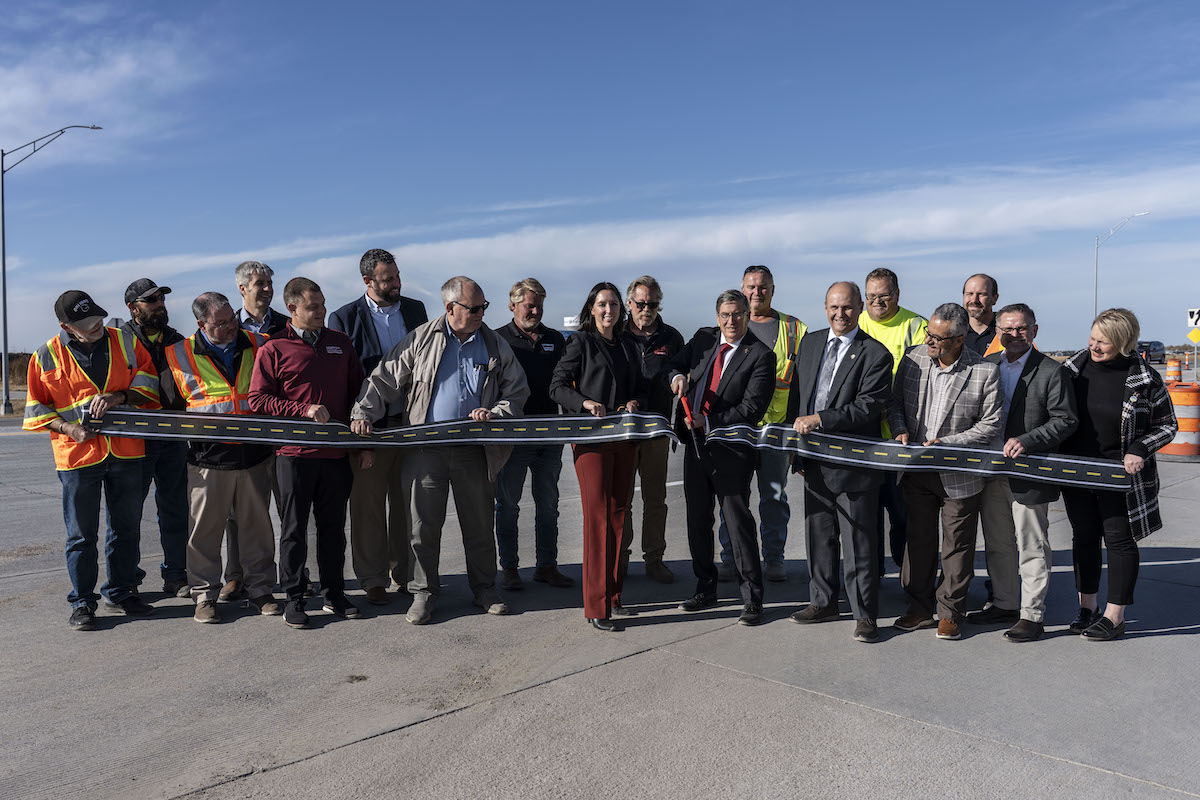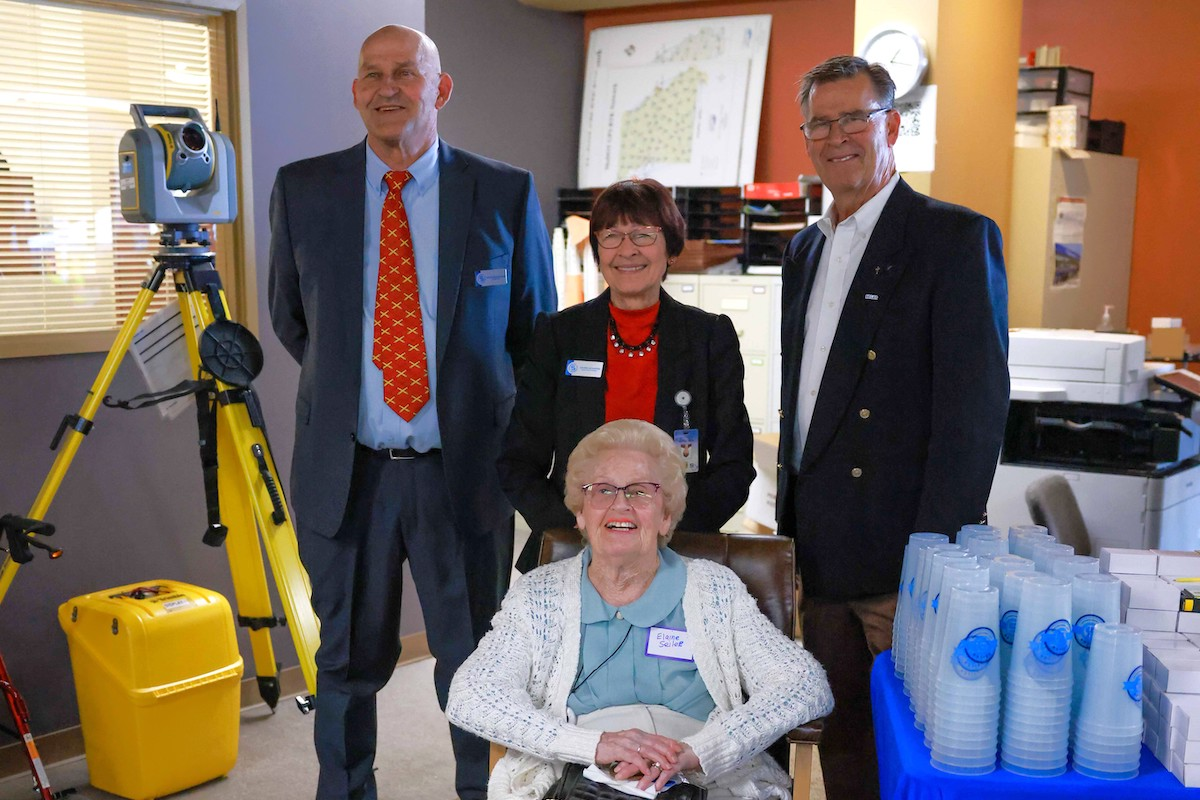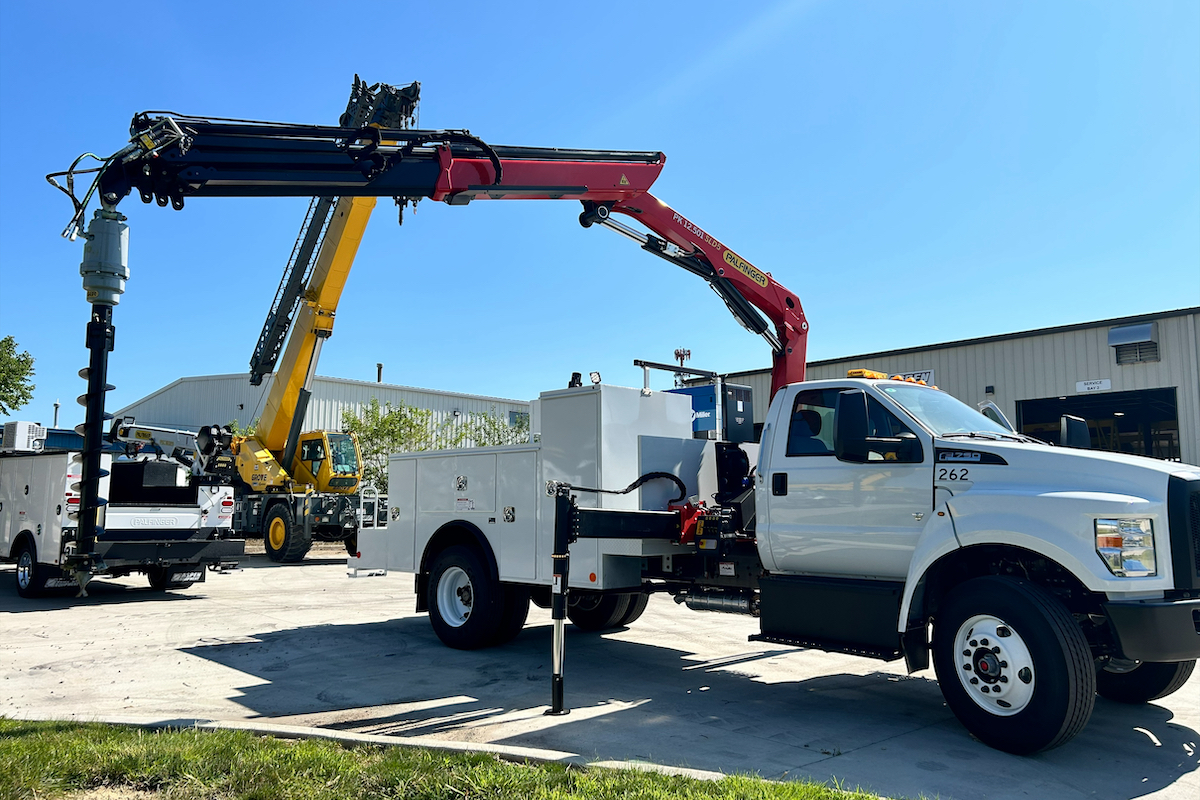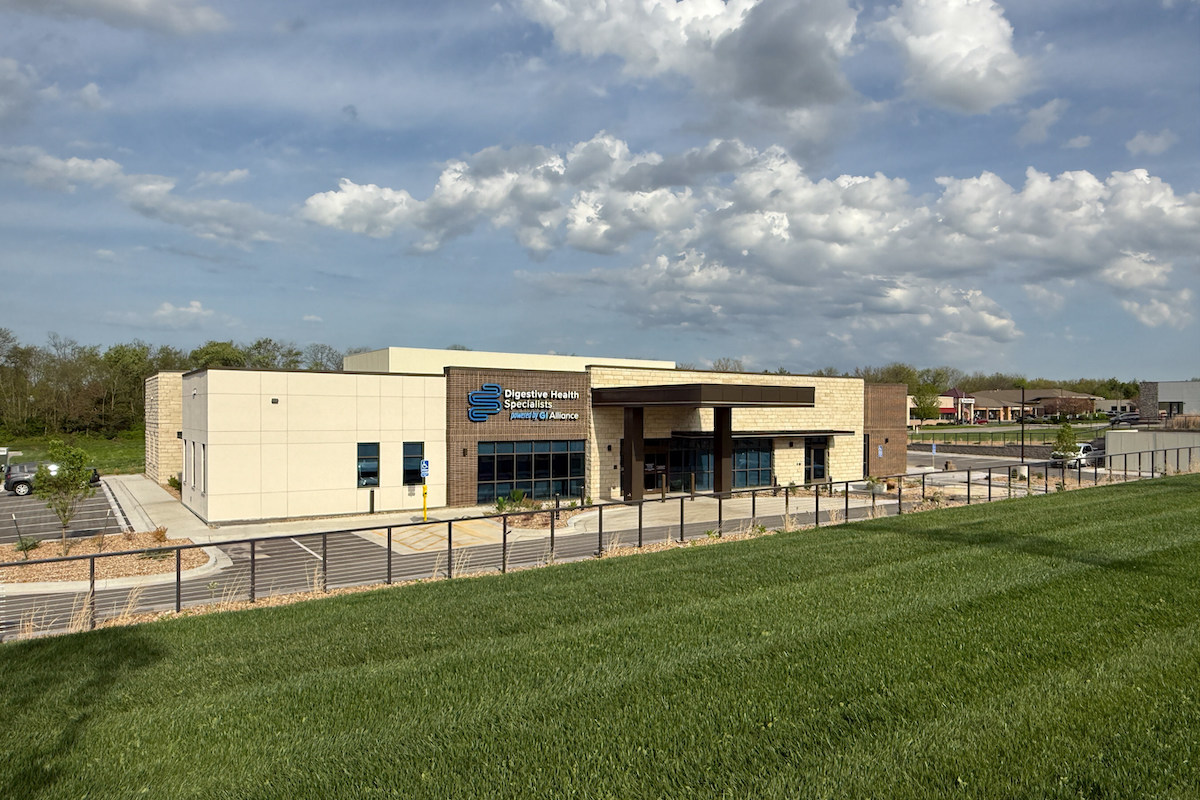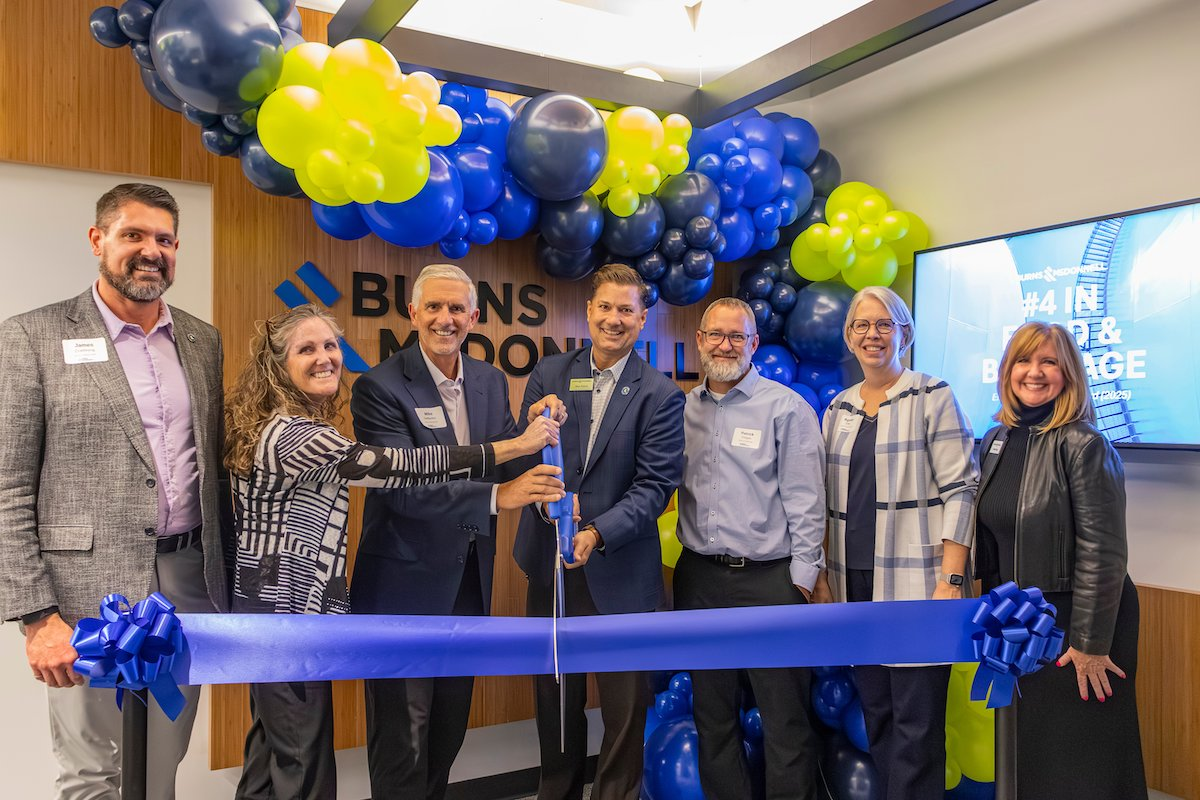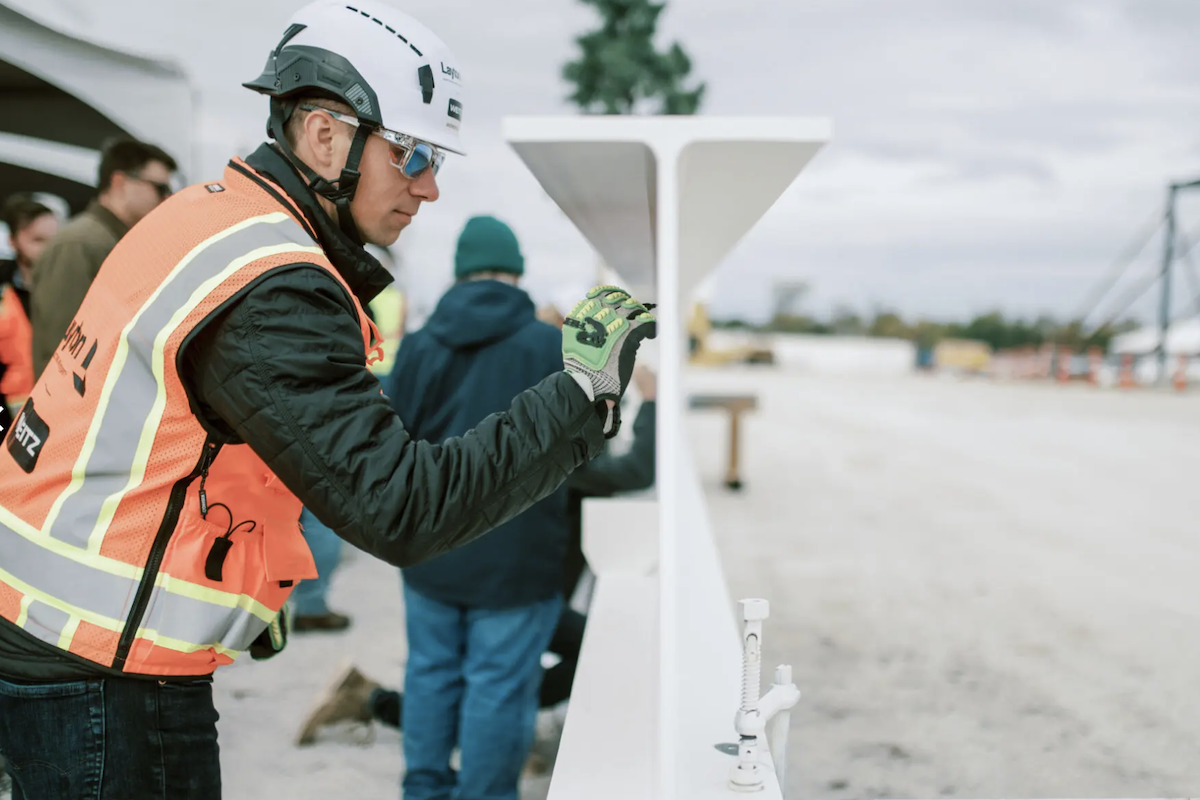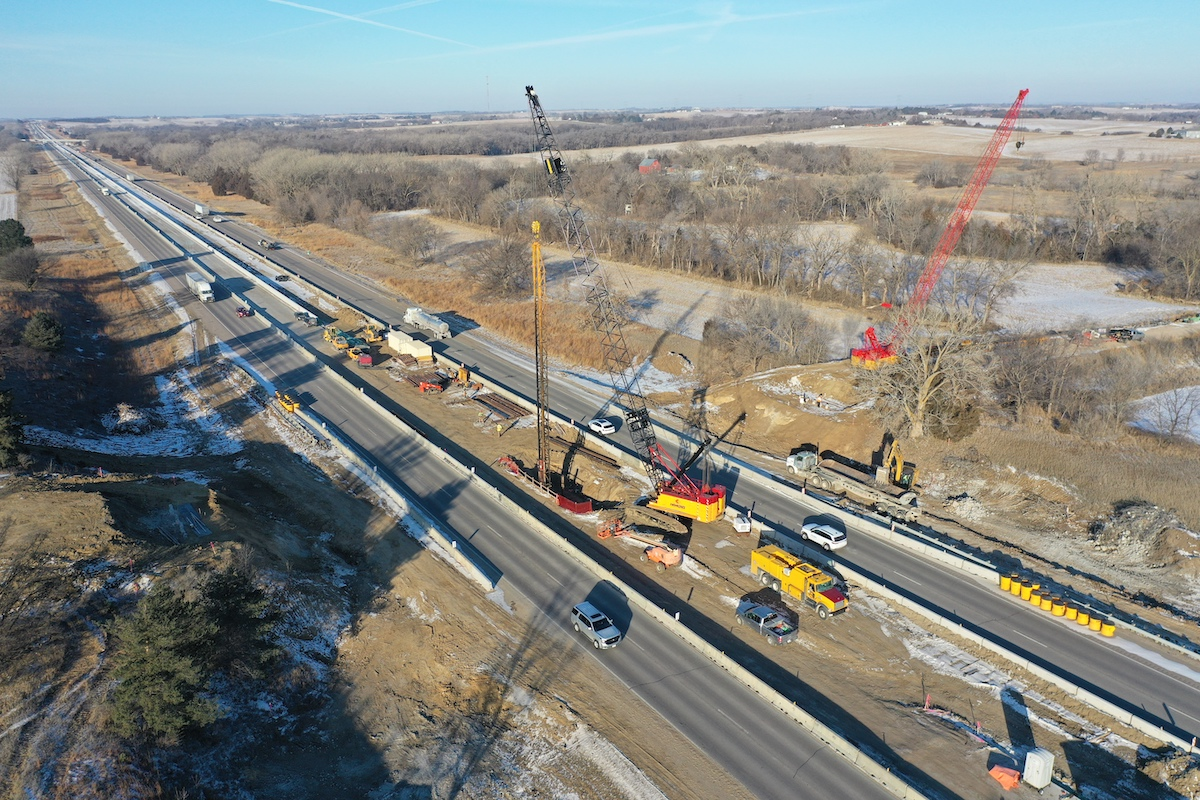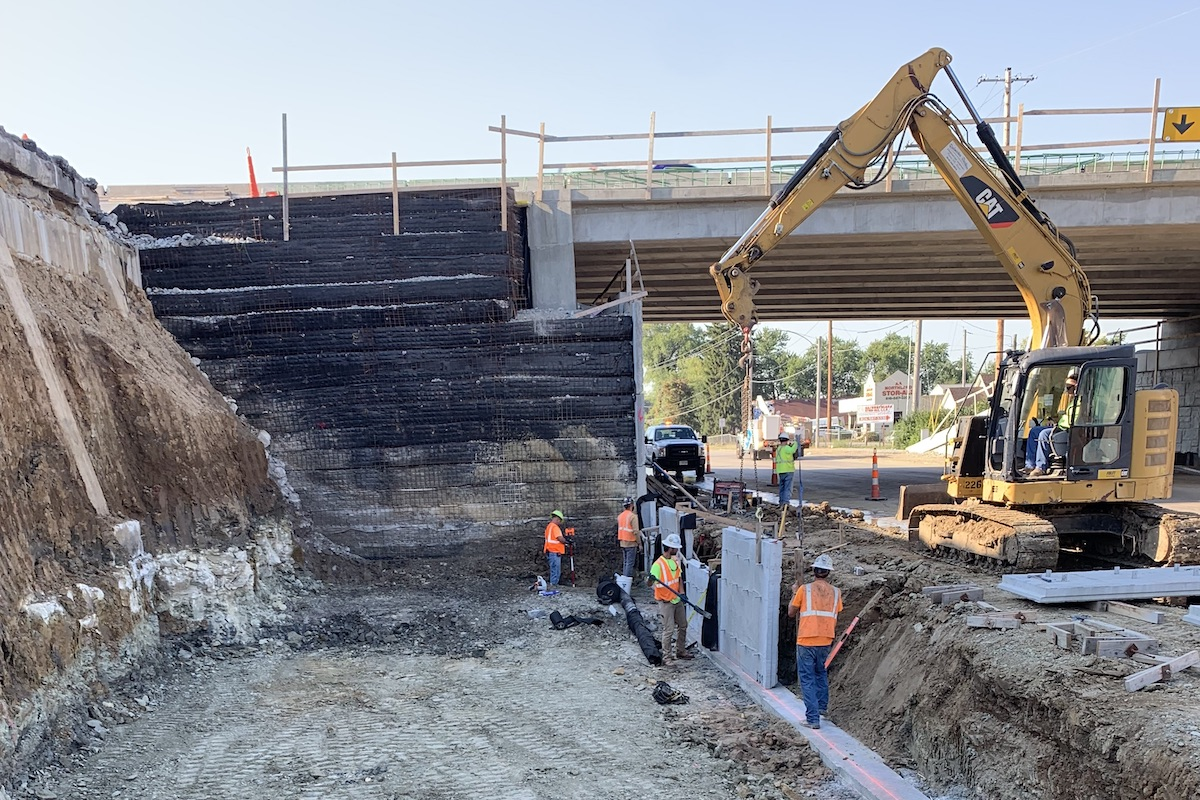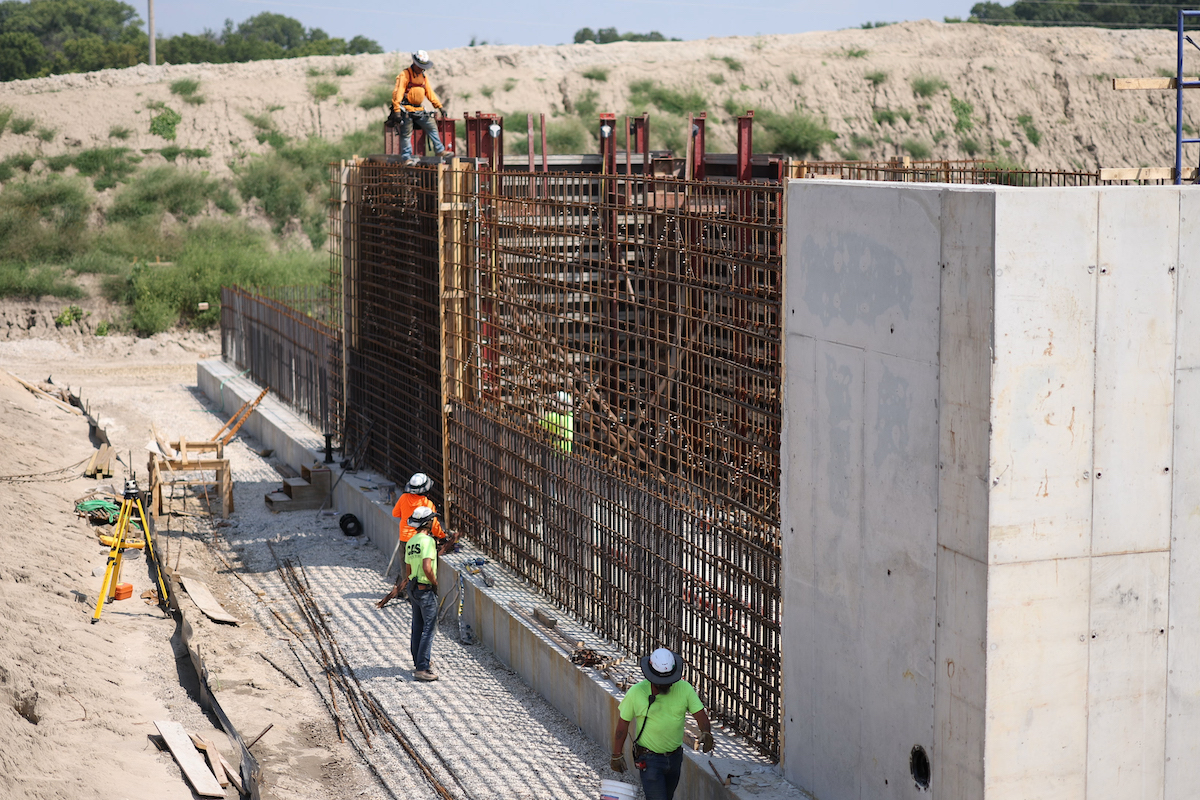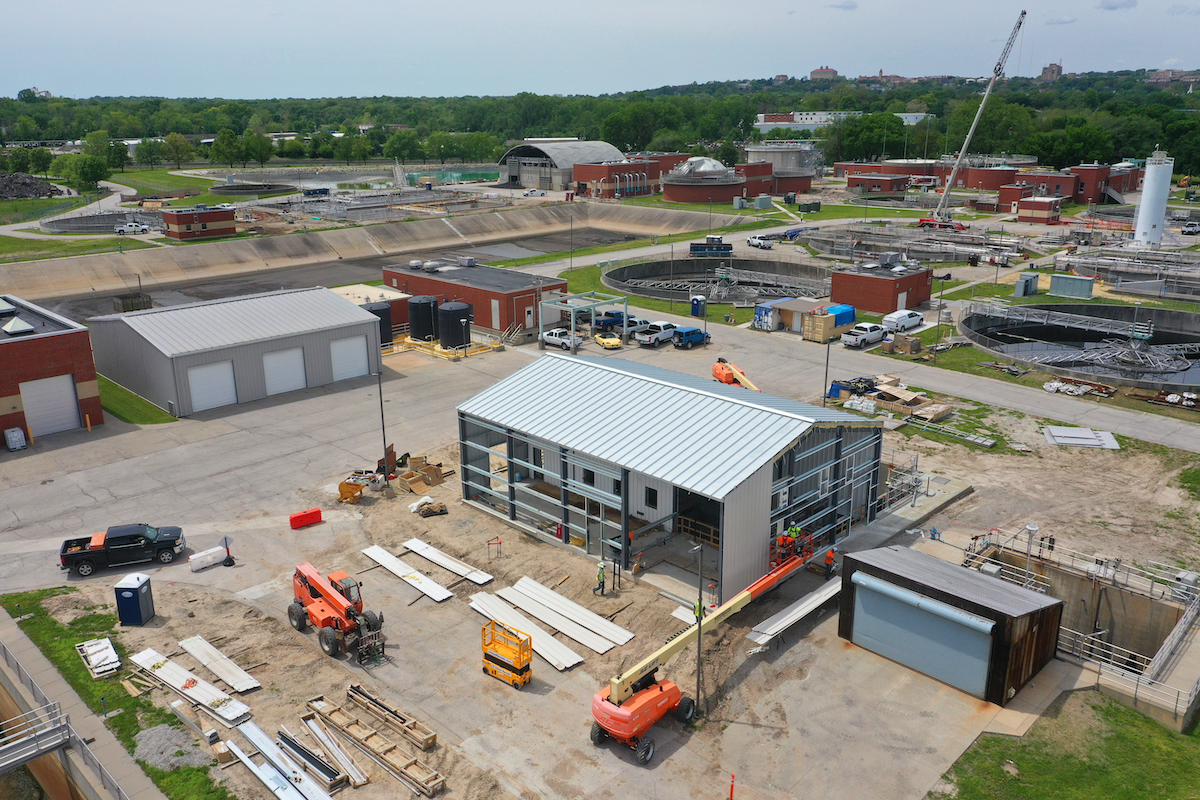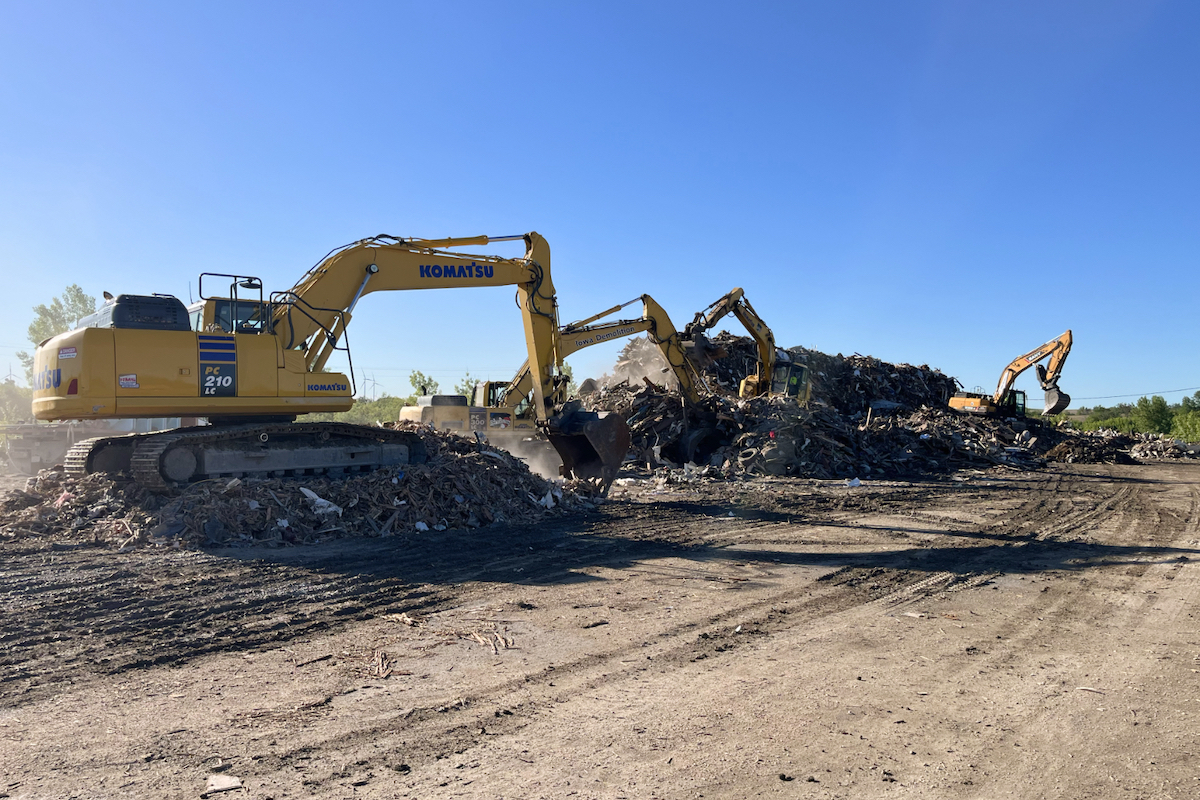“This is ADOT’s largest urban freeway reconstruction project,” says Amy Ritz, ADOT I-10 Broadway Curve Project Manager. “The benefits of this project include reduced travel times during peak hours, improved access to and from Phoenix Sky Harbor International Airport, improved access to over 4,600 businesses located along the construction corridor, improved safety by reducing lane changes, support for ridesharing and transit, and to better prepare the region for future growth projections.”
Approximately 300,000 vehicles travel through the I-10 Broadway Curve area on average weekdays. By 2040, the department expects weekday traffic will reach 375,000 vehicles, a 25 percent increase in traffic.
“These new lanes will not only provide additional capacity to accommodate the growing vehicle demand, but will also be allocated for specific uses, which will make maneuvering the area more efficient,” Ritz says.
The project also adds collector-distributor roads parallel to I-10 in some areas to separate through traffic on the I-10 from local traffic entering or exiting the highway and rebuilding the I-10 interchange with State Route 143 to improve traffic flow and create direct connections to and from SR 143, including HOV direct connections.

| Your local Manitou dealer |
|---|
| Star Equipment LTD |
| Star Equipment LTD |
“By separating through traffic on the I-10 mainline from the weaving maneuvers on the collector-distributor roads, as well as adding another HOV lane and the direct HOV connection to SR 143, this project will significantly reduce congestion and improve travel time reliability through this portion of I-10,” Ritz says.
ADOT recognized the weaving maneuvers slowed down traffic in this segment of highway.
“To help evaluate the necessary improvements to remedy this, it was important to understand where vehicles were coming from and going to so that traffic engineers could accurately model these movements and provide useful recommendations,” Ritz adds. “ADOT ultimately deployed anonymous re-identification devices over the span of a few weeks to capture Bluetooth and Wi-Fi signals within passing vehicles throughout the corridor.”
The information collected allowed ADOT to accurately model traffic patterns to ensure the proposed schematic would improve the existing weaving issues.
The scope of work also includes replacing the Broadway Road and 48th Street bridges over I-10; widening the I-10 bridges over the Salt River; building two bridges for pedestrians and bicyclists over I-10 at Alameda Drive and the Western Canal; and improving the Sun Circle Trail crossing at Guadalupe Road. Rebuilding the SR 143 and Broadway interchange also makes room for the wider footprint of I-10 and the collector-distributor roads.

| Your local Link Belt dealer |
|---|
| Kirby-Smith Machinery |
| Kirby-Smith Machinery |
“Once this project is complete, a total of 16 bridges, including two pedestrian, will be constructed, and five bridges will be widened,” Ritz adds.
“A public-private partnership design-build (DB) makes it possible to deliver much needed transportation projects in a timely manner, often years before the projects could be delivered using traditional project-delivery methods,” Ritz says. “At the beginning of this project, ADOT saw the benefit of procuring this project as a P3 DB. Through a P3 DB, the skills and assets of each entity, public and private, are shared in delivering a service or facility for the use of the general public.”
ADOT partnered with Broadway Curve Constructors, a joint venture among Pulice Construction of Scottsdale, Arizona; FNF Construction of Tempe, Arizona; and Flatiron Constructors of Broomfield, Colorado. T.Y. Lin International Group, with offices in Scottsdale, Arizona, serves as the engineer of record. Other engineers are Stanley Consultants and Aztec Engineering Group, both of Phoenix.
“In addition to the sharing of resources, each party shares in the risks and rewards potential in the delivery of the service or facility,” Ritz explains. “Also, a P3 opens up the innovation valve, so the industry can step up and utilize different materials, construction techniques and project phasing that can’t always be done in more traditional delivery methods.”
The risk is distributed optimally between ADOT and the private-sector partner, typically, to the party best able to manage the risk. Additionally, the P3 contract has outcome-based specifications.

| Your local Komatsu America Corp dealer |
|---|
| Road Machinery and Supplies Company |
| Road Machinery and Supplies Company |
“This means the public-sector owner specifies its requirements, and the private-sector partner determines the best way to meet them,” Ritz says. “A P3 project like this can offer benefits, such as accelerated delivery, greater innovation, potential cost savings and other efficiencies.”
Among the innovations Broadway Curve Constructors brought to the project, says Ritz, were the use of fiber-reinforced concrete for drainage channels and nonstructural elements; using traffic data to adjust traffic control, closures and detours based on real-world results; recycling the old concrete for base material; adding wrong way detection monitoring; and meeting with emergency services to locate barrier-gates between mainline and collector-distributor roads to assist in potential full freeway or collector-distributor closures as a result of accidents.
“Once completed, this will be the first project to use the barrier gate system to allow emergency access to the collector-distributor lanes,” Ritz says.
The construction team also developed a sequencing plan for the construction of bridges and other structures, which maintains traffic while reducing the number of required closures; provides sufficient construction access; improves safety for motorists and workers; and reduces the number of bridges constructed over live traffic.
Additionally, ADOT is proactively coordinating construction-related impacts with four municipalities, the Federal Highway Administration, the region’s public transit provider, and the Maricopa Association of Governments.

| Your local Topcon Positioning Systems Inc dealer |
|---|
| Star Equipment LTD |
| Star Equipment LTD |
The project, scheduled for completion in late 2024, is expected to generate 1,400 new construction jobs and 250 new long-term jobs in the region.
“I am really proud of the project team and the industry’s ability to pivot and continue forward momentum, even during the COVID-19 pandemic,” Ritz concludes. “In the midst of the pandemic, the team showed great dedication and professionalism and did an outstanding job bringing forth creative ideas that are keeping the project on schedule.”
Photos courtesy of the Arizona Department of Transportation


















